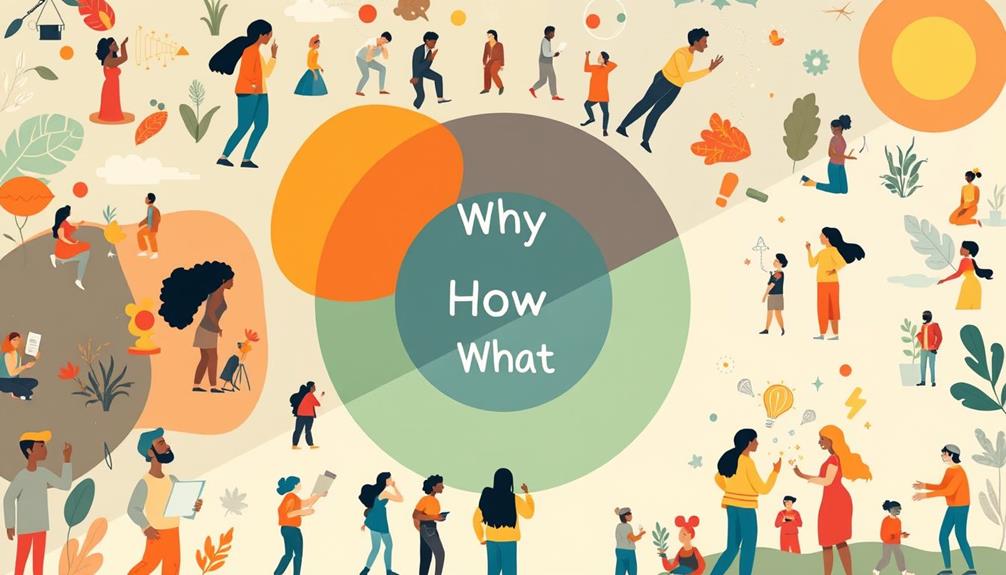George Washington Carver shows how education is the key to opening freedom and opportunity. Despite growing up in poverty and facing discrimination, he used his love of learning to transform agriculture and challenge stereotypes. His dedication helped communities and inspired many to believe in possibilities beyond societal limits. If you want to discover more about his inspiring journey and lasting impact, you’ll find lessons that highlight the power of perseverance and knowledge.
Key Takeaways
- Carver viewed education as a powerful tool for overcoming social and economic barriers faced by African Americans.
- His dedication to learning enabled him to develop innovative agricultural techniques and practical solutions for farmers.
- Education helped Carver challenge stereotypes and demonstrate the value of knowledge for marginalized communities.
- His achievements exemplify how education can lead to societal progress and personal liberation.
- Carver’s life shows that relentless pursuit of knowledge unlocks opportunities and fosters resilience.

Although he faced numerous obstacles, George Washington Carver proved that education is the key to opening freedom and opportunity. His story highlights the power of knowledge, especially in the context of agricultural innovation and African American history. You might not realize how much his innovations transformed farming practices, giving farmers new tools to improve their livelihoods. Carver’s work wasn’t just about science; it was about empowerment, breaking barriers that limited African Americans during a time of widespread discrimination.
You see, Carver’s journey began in the South, where segregation and poverty were common. Despite these challenges, he dedicated himself to learning, driven by an insatiable curiosity about plants and nature. His pursuit of education led him to become a prominent figure not just for his scientific discoveries but for his role in shaping African American history. He became a symbol of perseverance, showing that education could overturn social limitations and open doors to new opportunities. His commitment to teaching others and sharing his knowledge helped uplift entire communities, inspiring future generations to pursue their dreams despite adversity.
When you learn about Carver’s agricultural innovation, you recognize how he used science to address real-world problems faced by farmers. Instead of accepting the crop failures that plagued cotton farmers, he encouraged diversification through the cultivation of peanuts, sweet potatoes, and other crops. His research led to hundreds of uses for these crops, from food products to industrial materials, which helped farmers increase their income and reduce their dependence on a single crop. This approach revolutionized farming practices and demonstrated how education could foster practical solutions that benefit entire communities. Additionally, the integration of technological advancements in his work underscored the importance of combining science and education to create sustainable progress.
By studying Carver’s life, you see how African American history is filled with stories of resilience and ingenuity. His achievements challenged stereotypes and proved that education could be a tool for liberation. Carver’s dedication to learning and sharing his discoveries underscores the importance of investing in education, especially for marginalized groups. His legacy reminds you that knowledge isn’t just power; it’s a pathway to freedom, opportunity, and societal progress.
In the end, George Washington Carver’s story teaches you that education is more than just acquiring facts—it’s about transforming lives and communities. His innovations have left a lasting impact on agriculture, and his role in African American history continues to inspire. You realize that through education, you too can overcome obstacles, innovate, and contribute to a better future. Carver’s example confirms that the golden door of freedom opens widest when you open your mind and pursue knowledge relentlessly.
Frequently Asked Questions
What Inspired George Washington Carver’s Passion for Education?
Your curiosity about what inspired George Washington Carver’s passion for education reveals his deep understanding of overcoming racial discrimination and childhood struggles. He faced significant barriers, yet he believed education was the key to freedom and opportunity. His own experiences with hardship and perseverance motivated him to pursue knowledge, not just for himself but to uplift others. You see how his dedication transformed challenges into a powerful drive for learning and progress.
How Did Carver’s Inventions Impact Agricultural Practices?
You see, Carver’s inventions became the seeds of change, symbolizing hope and growth. His work on crop diversification helped farmers reduce reliance on cotton, while his emphasis on soil conservation protected the land. These innovations transformed agriculture, making farms more sustainable and resilient. By embracing his ideas, you can see how he nurtured a future where farming thrived, ensuring prosperity and health for generations to come.
What Challenges Did Carver Face as an African American Scientist?
You face racial discrimination and economic hardship as an African American scientist. These challenges hinder your opportunities and limit recognition for your work. Despite this, you persevere by focusing on your passion for education and innovation. You work tirelessly, overcoming obstacles with resilience, proving that determination and knowledge can break down barriers and pave the way for progress and equality.
How Did Carver’s Faith Influence His Work and Philosophy?
Have you ever wondered what drives true dedication? Carver’s faith influence and spiritual motivation shaped his work deeply, inspiring him to see his scientific pursuits as a way to serve others and honor his beliefs. His unwavering trust in a higher power pushed him to innovate for the greater good, showing that faith can fuel perseverance, purpose, and kindness in even the most challenging circumstances.
What Legacy Did Carver Leave for Future Generations?
You can see Carver’s legacy in his cultural contributions and commitment to community empowerment. He inspired future generations by promoting sustainable agriculture, education, and innovation. His work helped uplift underserved communities and fostered a sense of pride and self-reliance. Carver’s dedication to sharing knowledge and empowering others continues to influence countless lives, reminding you of the importance of education and service in creating lasting positive change.
Conclusion
Remember, education is the key to unfastening your potential and opening doors to freedom. Like the saying goes, “Knowledge is power,” and Carver’s life proves that learning can transform lives and break down barriers. By valuing education, you can overcome obstacles and create opportunities for yourself. Embrace every chance to learn, and you’ll find that the golden door of freedom is within your reach—waiting for you to step through and achieve greatness.









